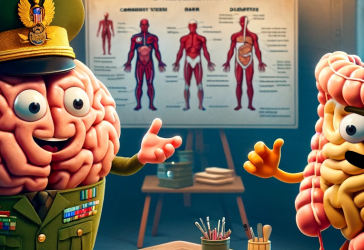Managing Anxiety and Stress: A Journey to Calm
Introduction:
Meet Sarah. Like many, she juggles the responsibilities of work, family, and personal aspirations. On the surface, she seems to manage everything with grace, but beneath the façade lies a constant undercurrent of anxiety and stress. Sarah’s story resonates with countless individuals navigating the pressures of modern life.
Symptoms of Anxiety and Stress:
Sarah first noticed her symptoms when she found it increasingly difficult to concentrate at work. Simple tasks felt overwhelming, and she often experienced a racing heart, sweaty palms, and an unshakeable sense of dread. At night, sleep evaded her, and she was plagued by persistent worries about the future. These physical and emotional symptoms are classic signs of anxiety and stress, often intertwined and mutually reinforcing.
Understanding the Stress Response:
One evening, Sarah decided to research why she felt this way. She learned about the body’s stress response, a survival mechanism designed to protect us from danger. When faced with a threat, the body releases hormones like adrenaline and cortisol, preparing us for “fight or flight.” While useful in short bursts, chronic activation of this response, as seen in prolonged stress, can lead to physical and mental health issues.
Causes of Stress:
Digging deeper, Sarah identified several stressors in her life: the pressures of a demanding job, financial uncertainties, and the challenge of balancing family responsibilities. She realised that her perfectionist tendencies and difficulty in saying “no” contributed significantly to her stress levels. These insights were both illuminating and daunting, highlighting the complexity of her situation.
How CBT Can Help:
Feeling overwhelmed, Sarah sought help from a Cognitive Behavioural Therapist. In her first session, she learned that CBT focuses on identifying and changing negative thought patterns and behaviours. Her therapist explained that anxiety often stems from distorted thinking, where the mind exaggerates potential threats and underestimates one’s ability to cope.
Through CBT, Sarah began to recognise her cognitive distortions. For instance, she often catastrophised, imagining the worst-case scenarios for everyday situations. She also engaged in black-and-white thinking, seeing things as either perfect or a complete failure. With her therapist’s guidance, Sarah started to challenge these thoughts, replacing them with more balanced and realistic perspectives.
Reducing Stress: Practical Strategies:
CBT also introduced Sarah to practical strategies for managing stress. She learned the importance of relaxation techniques, such as deep breathing and progressive muscle relaxation, which helped calm her body’s stress response. Her therapist recommended mindfulness practices, encouraging Sarah to stay present and focused rather than getting lost in worries about the future or ruminations about the past.
Exercise became another crucial part of Sarah’s routine. Regular physical activity improved her mood and provided a healthy outlet for releasing built-up tension. She discovered the benefits of a balanced diet, ensuring she fuelled her body with the necessary nutrients to combat stress.
Moreover, Sarah began to set boundaries, both at work and in her personal life. She realised that saying “no” was not a sign of weakness but an act of self-care. Prioritising her tasks and delegating when possible reduced her workload and allowed her to spend more time on activities that brought her joy and relaxation.
Conclusion:
Sarah’s journey with anxiety and stress is ongoing, but she has made significant strides in managing her symptoms and improving her overall well-being. Through understanding the nature of her stressors and utilising the tools provided by CBT, she has regained a sense of control over her life. Her story serves as a testament to the resilience of the human spirit and the power of seeking help when needed.
For anyone feeling overwhelmed by anxiety and stress, Sarah’s experience offers hope and guidance. By recognising the symptoms, understanding the stress response, and employing effective coping strategies, it’s possible to navigate the challenges of modern life with greater ease and confidence. Remember, seeking help is a sign of strength, and taking the first step towards managing stress can lead to a healthier, more fulfilling life.






